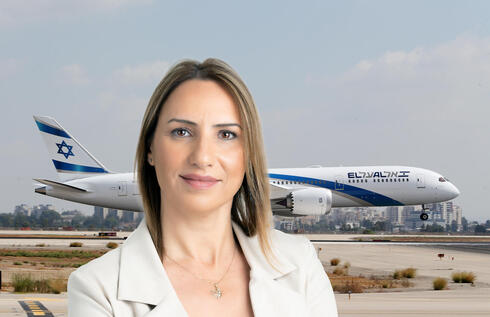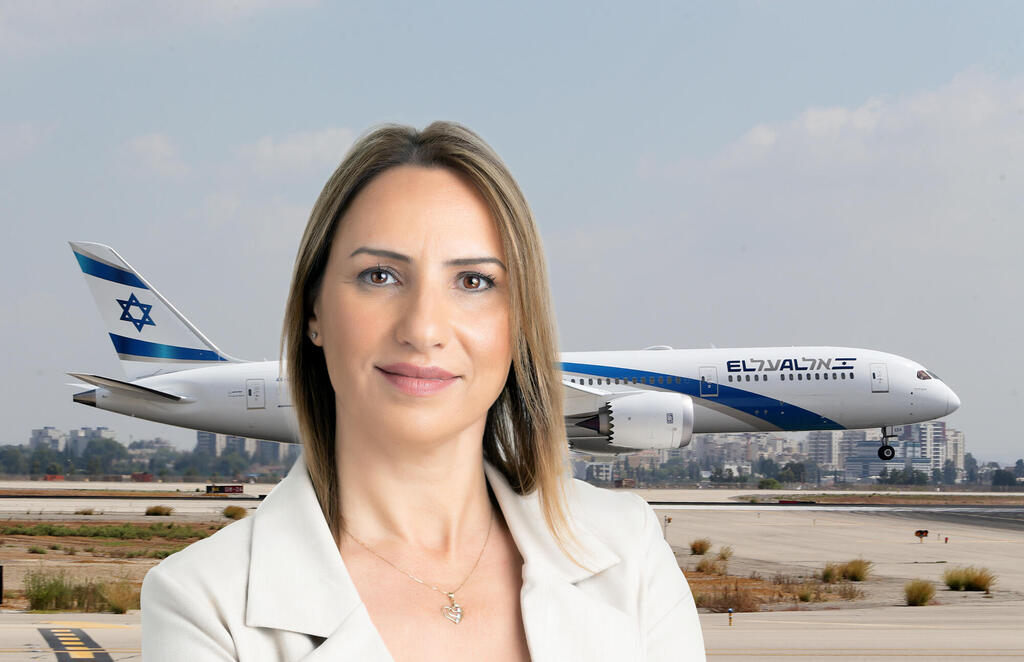
Following Dreamliner nosedive, El Al awaits Boeing explanation
The recent incident that saw a LATAM airlines Boeing airplane abruptly drop over Australia has left Israel’s national airline, which has 16 Dreamliner planes, with plenty of unanswered questions
El Al, Israel’s national airline, is waiting for an explanation from American aircraft manufacturer Boeing following an incident that occurred over Australia this week, when a Boeing 787 operated by LATAM Airlines dropped abruptly mid-flight amid strong turbulence resulting in several passengers being injured. The exact cause of the drop remains unclear.
A senior figure in the aviation industry described the incident over Australia as "strange" and said that "there is no malfunction that can justify a plane nosediving, because even in the case of an engine malfunction or shutdown, the plane is supposed to continue flying horizontally." According to him, "there is a theory that a sudden movement of the pilot's seat caused the stick to move in a way that led to the sudden dive. In any case, this is something that needs to be investigated."
El Al's entire fleet is made up of Boeing planes. It operates 47 planes, 16 of which are Boeing Dreamliners - the same model as the LATAM plane. El Al received its 16th Dreamliner last July, and in the next two years, it is supposed to acquire three more. These are wide-body aircraft designed for long flights, with relatively low fuel consumption, partly due to the materials used in the manufacturing process. Each of these planes has around 270 seats.
Last January, when an emergency exit of a Boeing 737 Max operated by Alaska Airlines detached during a flight in the United States, El Al inspected the emergency doors installed on its 737s, as a security measure. A source in the aviation industry clarified that there is no connection between the production lines of the Max and the 737s El Al owns. The Max models are among the newest manufactured by Boeing, while those used by El Al were manufactured about 12 years ago. Checking the doors on El Al's 737 planes took two days and did not yield any abnormal findings.
The aviation industry source said that there are close working relations between El Al and Boeing, with constant and immediate exchanges of reports, especially on safety-related items. However, the source emphasized that there was no need to ground some of the company's planes, which, since the outbreak of the Gaza War, is the only airline operating flights from and to Israel, leading it to significantly increase flight prices.
The source added that El Al maintains a rigorous approach to the safety of its aircrafts, and its technical teams conduct regular work processes. A significant portion of the company's technicians and maintenance workers are former members of the air force, who even after completing their military service undergo extensive training processes.
According to the same source, the chain of accidents involving Boeing's Max model requires a thorough examination by the American manufacturer, partly since documentation of the work done in the months preceding the incident disappeared. "I believe that [Boeing] knows how to straighten out its work processes and make the necessary adjustments, and I believe that it’s already undergoing such a process. Having said that, airplanes are still very safe, with various and complex systems installed in them that have a very high redundancy, so if something fails or malfunctions, there is backup. Nevertheless, from Boeing's perspective, this is a very bad incident."
First published: 15:05, 13.03.24














